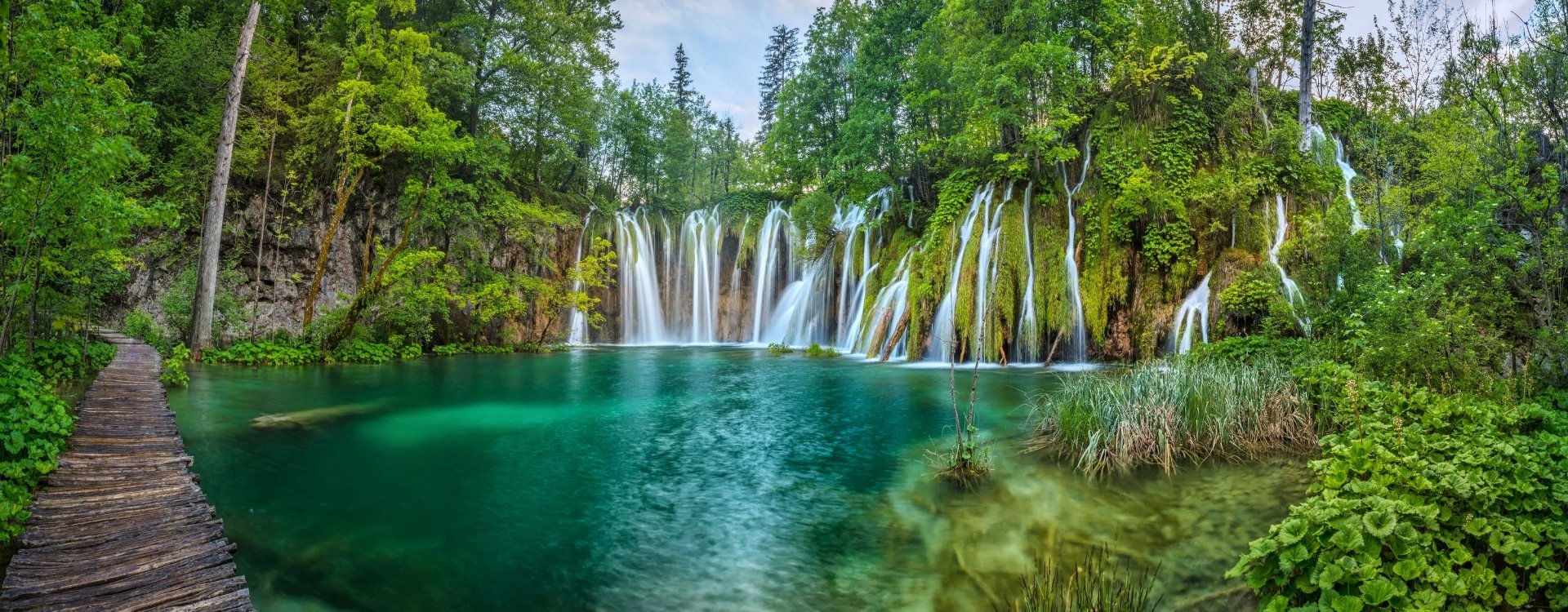Living and Working in Croatia
Information & guidance about seasonal jobs in Croatia
Seasonal jobs in Croatia
- Adventure jobs, Hotel jobs, Tourism
- Bulgaria, Croatia, Egypt, Greece, Italy, Spain, Turkey
- Adventure jobs, Hotel jobs, Tourism
- Bulgaria, Croatia, Egypt, Greece, Italy, Spain, Turkey
- Adventure jobs, Hotel jobs, Tourism
- Bulgaria, Croatia, Egypt, Greece, Italy, Spain, Turkey
- Adventure jobs, Hotel jobs, Tourism
- Bulgaria, Croatia, Egypt, Greece, Italy, Spain, Turkey
- Adventure jobs, Hotel jobs, Tourism
- Bulgaria, Croatia, Egypt, Greece, Italy, Spain, Turkey
Croatia, a Mediterranean gem, offers a unique blend of stunning natural landscapes, rich cultural heritage, and a growing economy. Known for its breathtaking coastline along the Adriatic Sea and charming historic towns, Croatia has become an increasingly attractive destination for expats seeking work and a Mediterranean lifestyle. This guide delves into the opportunities and challenges of living and working in Croatia, with a special focus on coastal cities and islands.
Working in Croatia
Working Conditions in Croatia
Croatia’s working environment offers a blend of modern and traditional values, influenced by its position as a member of the European Union. A typical workweek is 40 hours, Monday to Friday, though in some industries, especially tourism and hospitality, weekend and seasonal work is common. The labor laws in Croatia guarantee 20 days of paid annual leave, along with 14 public holidays, which is on par with many EU countries.
Salaries in Croatia are generally lower than in Western Europe, but the cost of living is also significantly more affordable. In coastal cities, the pace of work tends to be more relaxed, reflecting the Mediterranean lifestyle, while Zagreb, the capital, is more business-oriented and fast-paced.
Employees in Croatia enjoy a good level of job security, with strong protections under labor laws. However, the bureaucratic processes in Croatia can be challenging for expats unfamiliar with the system, particularly when applying for work permits or registering as a freelancer.
Working Opportunities in Coastal Cities
Coastal cities like Split, Dubrovnik, Rijeka, and Zadar offer unique working opportunities due to their focus on tourism, hospitality, and maritime industries. Tourism is a significant contributor to Croatia’s GDP, and jobs in hotels, restaurants, tour guiding, and yacht charters are abundant, especially during the summer months.
Split, often considered the cultural and economic hub of Dalmatia, offers opportunities in tourism management, digital nomadism, and real estate. Dubrovnik, known as the “Pearl of the Adriatic,” has a thriving luxury tourism industry, with roles in high-end hotels, restaurants, and guided tours. Knowledge of English is essential, and additional languages like German, French, or Italian are highly valued in these roles.
Seasonal work dominates the job market in coastal cities. For example, many expats find positions as diving instructors, chefs, or tour guides during the busy summer months. Beyond tourism, Rijeka, as a port city, also offers opportunities in logistics and shipping, appealing to expats with maritime or engineering backgrounds.
Working Opportunities on Croatian Islands
Croatia’s islands, including Hvar, Brač, Korčula, and Pag, are world-famous for their beauty and charm. While job opportunities on the islands are more limited compared to coastal cities, the tourism and hospitality industries provide the most significant employment prospects.
Seasonal jobs are the primary source of income for island residents, with expats often finding work in boutique hotels, restaurants, and water sports businesses. Hvar, a hotspot for luxury tourism, offers opportunities in event management, high-end hospitality, and yacht services. Brač, known for its famous Zlatni Rat beach, attracts water sports enthusiasts, with positions in windsurfing, kayaking, and diving.
For long-term expats, remote work or freelancing can be a viable option while living on the islands. Croatia has embraced the digital nomad lifestyle, introducing a Digital Nomad Visa that allows non-EU citizens to stay in Croatia while working remotely for international companies. The islands’ serene environment and growing infrastructure make them ideal for those seeking a peaceful yet connected work-life balance.
Salaries in Croatia
Salaries in Croatia are generally lower than in other EU countries. The average monthly gross salary is around €1,200, with coastal cities and islands typically offering lower wages in tourism and hospitality. However, these roles often come with additional perks such as free accommodation, meals, or tips.
In higher-demand sectors like IT, engineering, and finance, salaries range from €1,500 to €3,500, particularly in cities like Zagreb and Split. Seasonal jobs in hospitality or tourism typically pay €700 to €1,200 per month, but the cost of living in these areas is relatively affordable.
Freelancers and remote workers often find their earning potential higher than local salaries, especially if they work for international companies. For expats working in coastal areas or islands, the lower living costs and natural beauty often compensate for the modest salaries.
Income Tax in Croatia
Croatia’s income tax system is progressive, with rates ranging from 20% to 30%, depending on your income level. Social security contributions are also deducted, covering healthcare, pensions, and unemployment benefits. Expats working in Croatia are required to register with the Croatian Tax Administration and file annual tax returns, typically due by the end of February.
If you’re employed by a Croatian company, taxes and social contributions are automatically deducted from your salary. Freelancers or remote workers must manage their own tax filings, which can be complex. Croatia has tax treaties with many countries, ensuring expats don’t face double taxation.
Working Culture in Croatia
Croatia’s working culture emphasizes relationships, respect, and patience. While Croatian workplaces tend to respect hierarchies, the atmosphere is often informal, with colleagues addressing each other by first names. Networking and personal connections are highly valued, particularly in smaller communities or coastal towns.
The pace of work can vary significantly. Coastal cities and islands often have a more relaxed Mediterranean vibe, especially in the tourism sector, while cities like Zagreb are more aligned with the business-oriented work culture found in Vienna or Munich.
Punctuality is appreciated, but work processes can sometimes feel slower due to bureaucratic inefficiencies. Expats are encouraged to embrace flexibility and patience while navigating Croatia’s professional landscape.
Networking in Croatia
Networking is essential for finding opportunities in Croatia, particularly in smaller towns and on the islands. Expats can attend events hosted by organizations like the Croatian Chamber of Commerce or local expat groups in cities like Split or Dubrovnik.
Digital nomad communities are thriving, with co-working spaces like Saltwater Workspace in Split or Impact Hub Zagreb hosting events, workshops, and meetups. These spaces offer excellent networking opportunities, especially for freelancers or entrepreneurs.

Living in Croatia
Benefits of Living and Working in Croatia
Croatia offers a high quality of life, with stunning natural landscapes, excellent healthcare, and a welcoming culture. Expats often cite Croatia’s affordability, relaxed lifestyle, and Mediterranean climate as the primary reasons for relocating. The country’s rich cultural heritage, from ancient Roman ruins to traditional festivals, ensures there’s always something to explore.
Living in coastal cities or on islands provides a unique lifestyle compared to urban centers like Zagreb, with opportunities to enjoy outdoor activities such as sailing, hiking, and beachside dining. However, expats should be prepared for seasonal fluctuations in activity levels, especially in smaller towns that quiet down during the winter months.
Accommodation in Croatia
Accommodation in Croatia varies widely depending on location. In Zagreb and Split, a one-bedroom apartment in the city center averages €400 to €700 per month, while in smaller coastal towns or islands, rents can drop to €300 to €500. During peak tourist season, prices in coastal areas and islands may rise significantly due to demand.
Expats are advised to secure long-term rentals during the off-season, when availability is higher. Popular platforms for finding housing include Njuškalo.hr and Index Oglasi, though local real estate agents can also be helpful.
Cost of Living in Croatia
Croatia is relatively affordable compared to other EU countries. Monthly expenses for a single person typically range from €800 to €1,200, depending on the city or town. Coastal cities and islands are generally more affordable outside the tourist season, with lower prices for rent, groceries, and transportation.
Groceries are reasonably priced, with a weekly shop costing around €40 to €60 for a single person. Dining out is also affordable, with a meal at a mid-range restaurant costing €10 to €15. Public transportation in cities is inexpensive, with monthly passes averaging €30 to €40.
Where to Live in Croatia
Zagreb is the country’s cultural and economic hub, offering diverse job opportunities and a vibrant urban lifestyle. For those drawn to the coast, Split is a lively city with a mix of historic charm and modern amenities, while Dubrovnik caters to those seeking luxury and a connection to international tourism.
On the islands, Hvar and Korčula are popular choices for expats looking for a quieter lifestyle with access to nature. Each city and island offers a distinct character, so expats are encouraged to visit multiple locations before deciding where to settle.
Public Transport in Croatia
Croatia’s public transportation system is well-organized, with buses connecting cities and towns. In cities like Zagreb and Split, trams and local buses are the primary modes of transport. A monthly pass for public transportation costs around €30 to €40, making it an affordable option for commuting.
Ferries are the main mode of transport for reaching the islands, with services operated by Jadrolinija and Krilo. Ferry prices range from €5 to €15, depending on the distance and season.
Eating in Croatia: Restaurants and Food Cost
Croatian cuisine is diverse, influenced by Mediterranean, Central European, and Balkan traditions. In coastal cities, seafood dishes like grilled fish and black risotto are must-tries, while inland regions feature hearty stews and roasted meats.
Dining out is affordable, with local taverns, known as konobas, offering meals for €10 to €15. Markets are a great place to buy fresh, local produce, with seasonal fruits, vegetables, and fish available at reasonable prices.
Croatia’s Nightlife
Nightlife in Croatia varies by location. Coastal cities like Split and Dubrovnik have a lively bar and club scene during the summer, with beach clubs and open-air parties popular among locals and tourists. Zagreb offers a more urban nightlife experience, with trendy bars, jazz clubs, and live music venues.
On the islands, nightlife centers around seasonal beach festivals and local events, with Hvar being a standout destination for its luxury bars and nightlife spots. During the off-season, island nightlife slows considerably, offering a more tranquil lifestyle.
Weather in Croatia
Croatia’s climate is Mediterranean along the coast, with hot, dry summers and mild winters. Inland areas, including Zagreb, experience a continental climate, with colder winters and occasional snowfall. Summer temperatures in coastal areas average 28-32°C, while winters hover around 10-15°C.
The islands enjoy more sunshine than the mainland, making them ideal for outdoor enthusiasts. Spring and autumn are particularly pleasant, with mild weather perfect for exploring Croatia’s natural beauty.
Croatia’s Nature
Croatia boasts stunning natural landscapes, from the turquoise waters of the Adriatic to lush national parks like Plitvice Lakes and Krka Waterfalls. Coastal cities and islands offer endless opportunities for outdoor activities, including sailing, kayaking, and hiking.
The Dalmatian Coast is a paradise for nature lovers, with crystal-clear waters and unspoiled beaches. Inland, the rolling hills of Istria and the rugged mountains of Gorski Kotar provide breathtaking scenery and outdoor adventures.
What Not to Miss in Croatia
Croatia is rich in history and culture, with UNESCO World Heritage Sites like Diocletian’s Palace in Split and the Old Town of Dubrovnik drawing millions of visitors each year. The Blue Cave on Biševo Island and the Elafiti Islands are must-see destinations for those exploring Croatia’s natural wonders.
Seasonal festivals, such as the Dubrovnik Summer Festival and Ultra Europe in Split, add to the country’s charm, offering expats a chance to immerse themselves in Croatian culture and entertainment.







